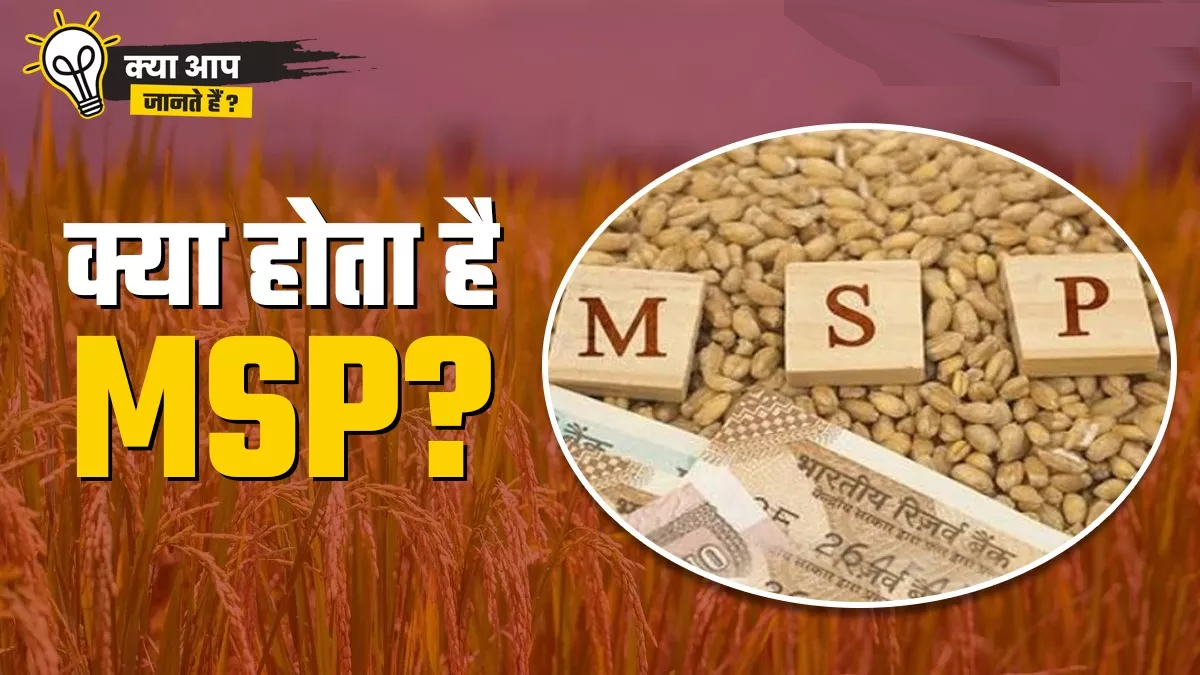Context-
The demand for a legal guarantee for Minimum Support Prices (MSP) in India has been a longstanding issue among farmers. Amidst recent protests, the necessity and implications of such a guarantee have come into focus. The discussion surrounding legal MSP revolves around its role in stabilizing agricultural markets, ensuring fair prices for farmers, and addressing longstanding issues within the agrarian economy. This analysis aims to look into the multifaceted aspects of the MSP debate, examining its significance, challenges, and potential solutions.
Current Scenario and Farmer's Demands
Farmers across India have been vocal in their demands for a legal guarantee for MSP. Unlike the past, where protests were triggered by specific legislation, the current agitation centers on broader concerns regarding agricultural policies and farmer welfare. Central to these demands is the call for price stability and income security through the institutionalization of MSP. However, there exists a lack of clarity regarding what a legal MSP entails and its potential implications.
Challenges and Misconceptions
One of the primary challenges in addressing the MSP issue lies in misconceptions surrounding its implementation and fiscal implications. Exaggerated estimations of the fiscal burden associated with legal MSP, ranging from Rs 10-18 lakh crore, have clouded discussions and hindered meaningful policy deliberations. These estimations often stem from a limited understanding of agricultural markets and the role of MSP in price stabilization.
Analysis of Government Procurement and Market Dynamics
Government procurement data offers valuable insights into the practical implementation of MSP policies. In recent years, procurement figures have fallen short of targets, raising questions about the effectiveness of existing mechanisms. Despite market prices surpassing MSP levels, government intervention has been limited, primarily focusing on rice and wheat. This selective approach has left many farmers without the promised support, highlighting the need for comprehensive reforms.
Cost-Benefit Analysis of Legal MSP
Contrary to popular belief, implementing a legal guarantee for MSP may not incur exorbitant costs as projected. The notion that the government would be required to procure all agricultural produce is a fallacy rooted in misconceptions about market dynamics. In reality, government intervention would only be necessary when market prices fall below MSP levels, which may constitute only a fraction of total produce.
Examining Fiscal Implications and Subsidy Structures
The fiscal implications of legal MSP extend beyond direct procurement costs. Subsidy structures, particularly under the National Food Security Act (NFSA), play a significant role in shaping the economic landscape. While government procurement of rice and wheat incurs substantial expenses, the bulk of these costs are borne as subsidies to consumers rather than direct support to farmers. Understanding these intricacies is crucial in formulating sustainable agricultural policies.
|
Swaminathan Commission's Stand on MSP Contrary to the current demands of protesting farmers, the Swaminathan Commission did not explicitly recommend a legal guarantee for MSP or the specific formula, such as C2 (actual cost of production) plus 50%, as currently demanded. The Commission, in its second report, made only two recommendations relating to MSP.
|
Exploring Market Dynamics and Price Stabilization
Market dynamics and price stabilization mechanisms are integral to the MSP debate. While MSP serves as a safety net for farmers, its effectiveness hinges on broader market forces and government interventions. Timely interventions, including open-market operations and strategic exports, can help mitigate price fluctuations and ensure stability in agricultural markets. However, these strategies require careful planning and coordination to achieve desired outcomes.
Addressing Structural Imbalances and Regional Disparities
The MSP framework must address inherent structural imbalances and regional disparities prevalent in Indian agriculture. Current procurement practices are concentrated in specific geographical regions and limited to a handful of crops, exacerbating inequalities and neglecting the diverse needs of farmers across the country. A more inclusive approach, encompassing a wider range of crops and regions, is essential for promoting equity and sustainable development.
Revitalizing the Rural Economy
At its core, the demand for legal MSP reflects broader concerns surrounding the rural economy's stagnation and declining agricultural incomes. Revitalizing the rural economy requires holistic reforms encompassing not only MSP but also investment in infrastructure, technology, and human capital. Protecting farmers' incomes and ensuring price stability can catalyze rural growth, stimulate demand, and foster inclusive development.
Conclusion: Toward a Sustainable Agricultural Future
In conclusion, the demand for legal MSP represents a pivotal moment in India's agricultural trajectory. It underscores the urgent need for comprehensive reforms aimed at addressing longstanding challenges and empowering farmers. By dispelling misconceptions, exploring innovative solutions, and fostering dialogue between stakeholders, policymakers can chart a path toward a more equitable and sustainable agricultural future. Embracing the principles of fairness, resilience, and inclusivity, India can unlock the full potential of its agrarian economy, ensuring prosperity for generations to come.
|
Probable Questions for UPSC Mains Exam - 1. Discuss the significance of the demand for a legal guarantee for Minimum Support Prices (MSP) in India's agricultural landscape, highlighting the key challenges, misconceptions, and implications associated with implementing such a policy. How can a legal MSP contribute to addressing the concerns of farmers regarding price stability and income security? (10 Marks, 150 words) 2. Analyze the Swaminathan Commission's recommendations on Minimum Support Prices (MSP) and compare them with the current demands of protesting farmers. Evaluate the feasibility and implications of implementing a legal guarantee for MSP, considering market dynamics, fiscal implications, and regional disparities in Indian agriculture. (15 Marks, 250 Words) |
Source- The Hindu







